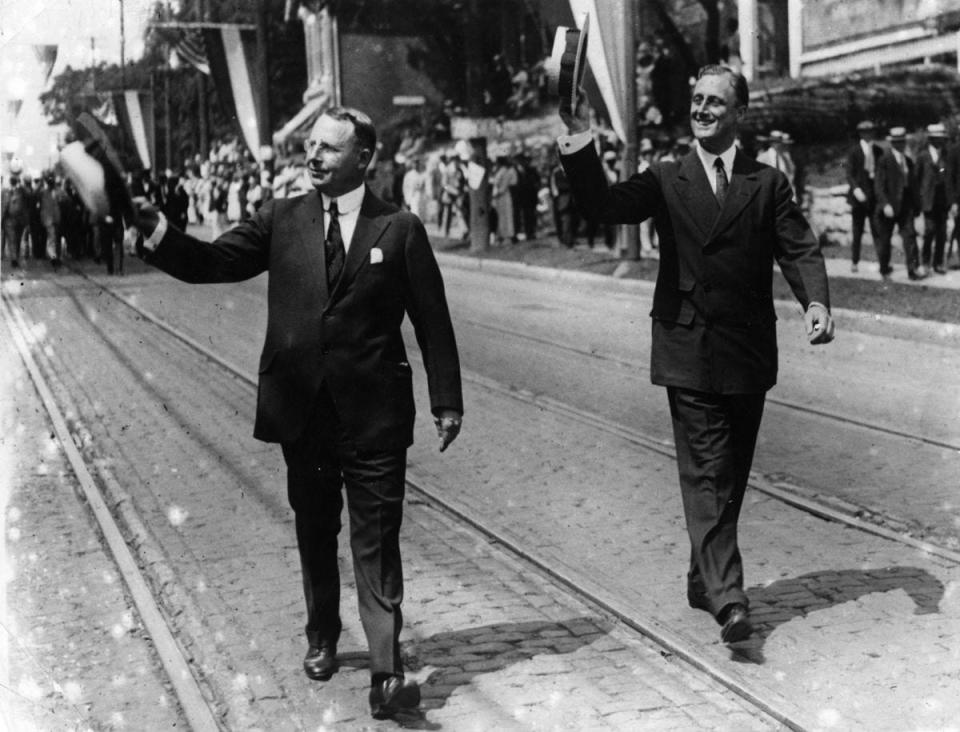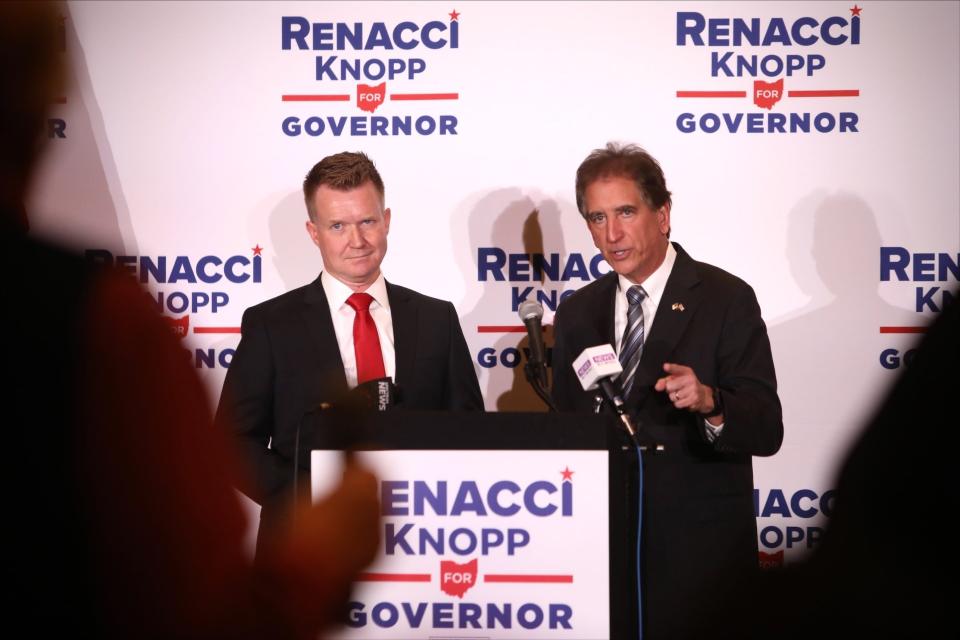SUDDES: Warring Republicans handing Democrats a chance to win big in Ohio

- Oops!Something went wrong.Please try again later.
- Oops!Something went wrong.Please try again later.
The restless right wing of the Ohio Republican Party might care to keep one thing in mind (besides its eternal sense of victimhood): When the GOP splits, Democrats benefit.
True enough, some inside-the-GOP differences go back a long way. One faction – call it cash-basis conservatives – focuses on tax cuts, business profits and light-touch regulation.
More: Ohio Republican machine rigs system to block primary challengers, Republican candidate says
The other faction – call it the Bible-and-Beretta caucus – wants to save souls between rounds of target practice. That sort-of-religious outlook is a perpetual eddy in the stream of Ohio Republican politics. Yesteryear’s key example was Prohibition. Today’s is abortion.

The successful GOP politician is she or he who can successfully navigate through those two currents. Historically, Gov. Mike DeWine has been a skilled helmsman: Consistently right-to-life while also adhering to the James A. Rhodes school of economics that “profit is not a dirty word in Ohio.”
Now though, Ohio Republicans, or at least some of them, are restless. There’s lots of appeal in all-or-nothing politics, as Donald Trump’s Ohio successes showed: He drew 51.3% of Ohio’s vote in 2016, a share that increased to 53.2% in 2020.

But as suggested by the recent rumpus at a meeting of the Ohio Republican State Central Committee, all is not placid in Lincoln’s party.
A considerable (or at least noisy) faction – which defines itself as conservative – thinks DeWine is anything but conservative, thanks to measures he took to fight COVID-19.
More: Letters: Politicians have failed in the war against COVID-19
Part of Republicans’ battle is also stoked by questions about the state party’s bookkeeping.
More: 'Determined to destroy the Ohio Republican Party': GOP internal finances are latest rift
There’s always something on the right: But Republican splits (and stay-at-home GOP voters) give Democrats their best chances of winning Statehouse executive offices. In 1852, presidential nominee Franklin Pierce (coincidentally, a distant ancestor of Barbara Bush – there is an American Establishment) was the last Democrat to carry Ohio for 60 years, until 1912, when Woodrow Wilson did.

Why?
In part because Ohio Republicans split over whether to re-elect Cincinnati’s William Howard Taft as president or return Bull Moose Progressive Theodore Roosevelt to the White House. (Also in 1912, Ohio elected Dayton Democrat James M. Cox governor.)

In 1970, Democrats won every statewide executive office (except secretary of state and then-separately elected lieutenant governor), thanks to an internal Republican fracas over the Crofters affair (which was peanuts by House Bill 6 standards but a huge deal at the time).
What’s more, in an angle that seems quaint today, in 1970, some Ohio House Republicans lost their seats – helping lose an Ohio House majority in 1972 – by voting “yes” on a measure to permit Sunday liquor sales by the drink under very limited circumstances. That’s what ideology gets a party in Ohio: Losses.
In 1976, the Ohio GOP split over incumbent Gerald Ford vs. challenger Ronald Reagan as Republicans’ prospective presidential nominee. That surely was partly why Jimmy Carter carried Ohio that year by 11,000 votes.
One upside for the GOP is that Republicans seem like a well-oiled machine compared to Democrats, who last ran Ohio’s government in the 1980s. Republicans have since had an almost 40-year streak of statewide wins (except for U.S. Senate seats), thanks partly to legendary Republican State Chair Ray Bliss’s maxim: Keep issues out of campaigns.
More: Capitol Insider: Republicans running hard for re-election vs invisible Democratic foes
The Ohio GOP’s in-house rebels may feel otherwise. But Republican success stories such as four-term Gov. James A. Rhodes and two-term governors George V. Voinovich and John R. Kasich didn’t win by talking books and ideas. They talked bread and butter. And they won.
MEANWHILE: At deadline, it was unclear when the legislature would let Ohioans legally bet on sports. Passage is expected, the timing’s in question.
More: Column: Ohio is losing big without legal sports betting
A third angle needs to be questioned, but hasn’t been, except indirectly, by the Legislative Service Commission:
Creating the Ohio Lottery required Ohioans’ approval in a 1973 ballot issue: 64% of those voting agreed to the lottery’s creation. In 2009, 53% of those voting permitted one gambling casino each in Columbus, Cleveland, Cincinnati and Toledo. (That campaign cost promoters $50 million.)
But sports betting – on the Bengals and Browns and Buckeyes, etc.? The legislature alone gets to decide that. Why?
Thomas Suddes is a former legislative reporter with The Plain Dealer in Cleveland and writes from Ohio University. tsuddes@gmail.com
This article originally appeared on The Columbus Dispatch: How could Democrats win statewide seats in Ohio

